When I graduated college, a few years (ok, a lot more than a few), I was suddenly thrust into adulthood, with no direction. Everything I needed to know about my life was already laid out. Now, the next steps were up for me and I didn’t know where to go. I started just going through the motions and hoped to fake it ‘til I made it, but it didn’t take long for that plan to completely fall apart. I became increasingly anxious about the future, my life became monotonous and I lost track of what I was doing. I was unable to think clearly and let my mind drift with my deepest worries. I started trying to control every aspect of my life, even though I knew deep down that was a fool’s mission. My mental health had truly never been worse—I just didn’t realize I was on a downward spiral until I was already fully in it.
It took a lot of work to get me out of this mess once I realized what was going on. But now, I’m in a better place than I ever was before and know exactly what I need to do if I ever catch those anxious thoughts and feelings worming their way back into my mind. The key to keeping my mental health where it needs to be is consistency, but I’m not about elaborate routines that I have to build my entire life around. Instead, I am focused on five simple things that ensure I prioritize my mental well-being on a daily level. This is what works best for me:
1. Stick to my treatment program
I know I’m not alone in this, but I used to feel a ton of shame talking about my anxiety. I kept the fact that I had gone to therapy secret and, oh my God, I was taking medication to manage it. But truthfully, there’s no shame in putting your mental health first. Now, I’ll be the first to recommend someone seek therapy and will happily share my experience with SSRIs (common medications used for anxiety and depression) with anyone wondering or curious. This kind of treatment only works if you stick to it, and having worked with my doctor to figure out what’s best for me, I’m now settled into a medication that actually eases my anxiety. I make it super easy by keeping my prescription close to my desk so I don’t forget about it every morning. If you’re interested in doing the same,I recommend Hers, which is a one stop solution for all your individual mental health needs.

When I started this journey, I had many doctors to visit for different parts of the process. These included the initial referral, prescription, and talk therapy. It was a lot to manage, and it also meant that I wasn’t in the best mental place. I love that Hers offers personalized anxiety and depression treatment plans that include both counseling and prescriptions—all online. With Hers, you can no longer spend hours calling to find an in network provider or driving around town to pick-up prescriptions or wait in a waiting room. Accessing care can be a barrier to many people. Hers makes it easy by offering patients treatment plans that fit their needs and work around their schedules.
You are interested in trying Hers for the first time? Click here to get 70% off your first month’s treatment!
2. Move my body
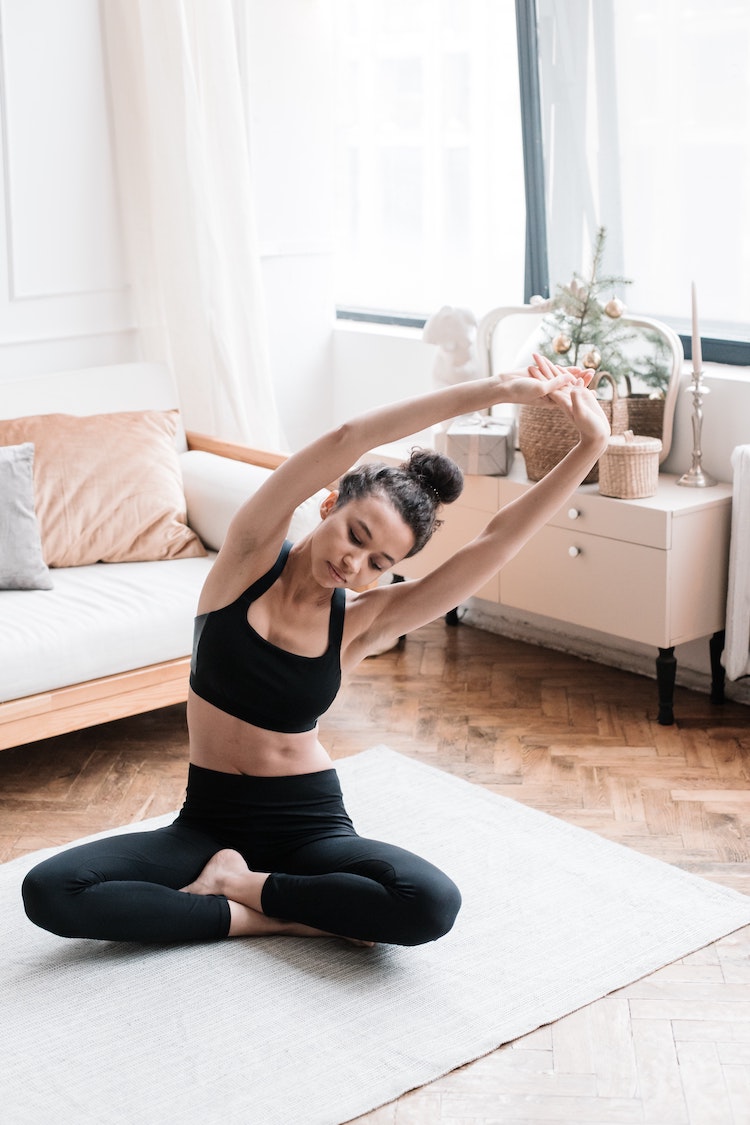
I have terrible news. Regular exercise is good for your mental well-being. Prior to beginning therapy, I didn’t really have an exercise routine. Sure, I would work out here and there, but I was one of those lifelong athletes who suddenly didn’t have a clue how to stay in shape after quitting sports. My therapist suggested that I start a routine. It gave me the motivation I needed to do it. I knew my body needed it physically, and setting aside the fact that exercising produces endorphins, which, thanks to Elle Woods, we know make people happy, my therapist provided this logical explanation: When you’re exercising, you can’t really focus on anything else, and afterwards, you’re too tired to.
I try to exercise at least four times a week. I notice a significant improvement in my mental health if I stop doing this. Whenever I’m feeling particularly down or anxious, even just a little bit of movement is enough to make me start to feel better. I have been able to manage my anxiety by sticking to a consistent routine.
3. Sleep supplement
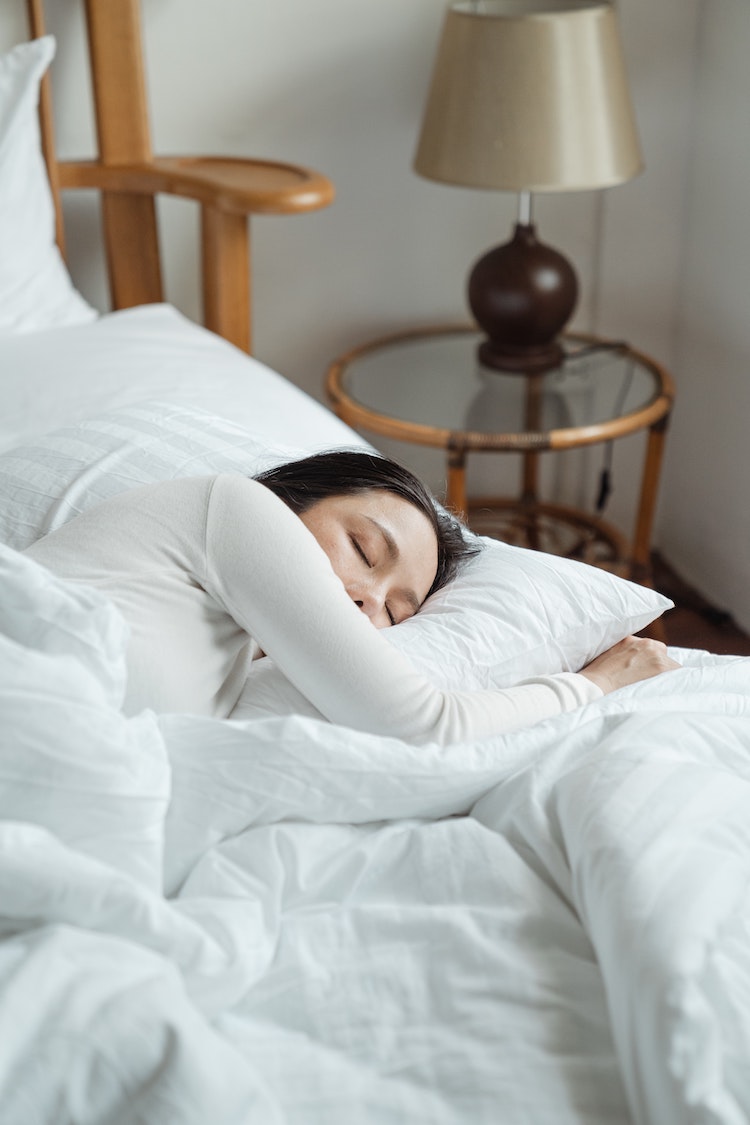
My sleep is one of the most significant ways that my anxiety affects daily life. To put it simply, I don’t sleep well. I struggle to fall asleep no matter what hour I go to bed. Instead, I prefer to just chill with my thoughts. In addition to a strict wind-down routine (I’m talking skincare, no phone, a good book), taking a sleep supplement is a crucial part of lulling me to a restful sleep. I usually take a simple melatonin gummy I get from the drugstore, but I have recently tried Equilibria’s CBD sleep gummies and am a true convert. They help me relieve any lingering stress and fall into a gentle sleep—but they’re not so strong that I’m super groggy in the morning.
4. Get out of bed as soon as the alarm goes off
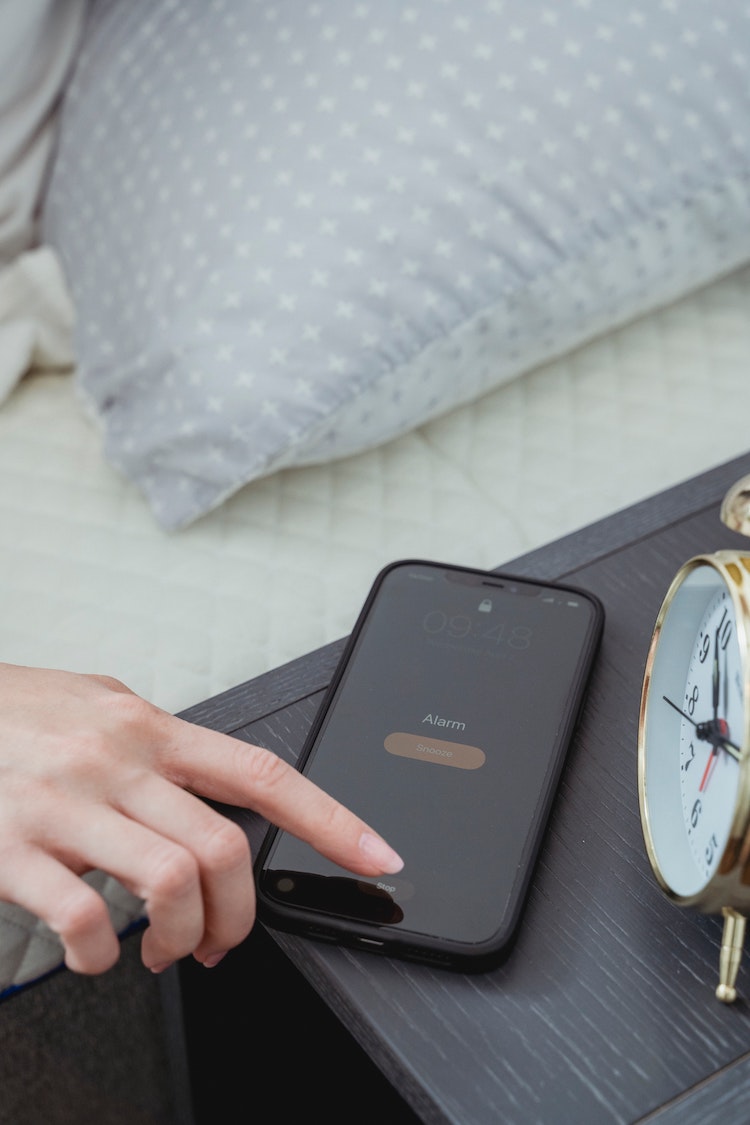
This is probably the hardest adjustment I’ve made to my daily routine, but the payoff has been huge. I enjoy a good night’s sleep and love the opportunity to get a few more minutes. Sometimes, I’d even hit snooze until the minute before I needed to be logged on for work, roll out of bed without properly waking up, and get right to work. Unfortunately for my sleep-loving self, that’s not sustainable and those few extra minutes of sleep actually make me feel worse rather than more rested. I found that I felt more energetic after going through my morning routine. This allowed my mind and body time to wake up and allow me to get to work. On days I sleep in a little too late, I’m sluggish, irritable, and simply not my best self.
5. Take breaks from work
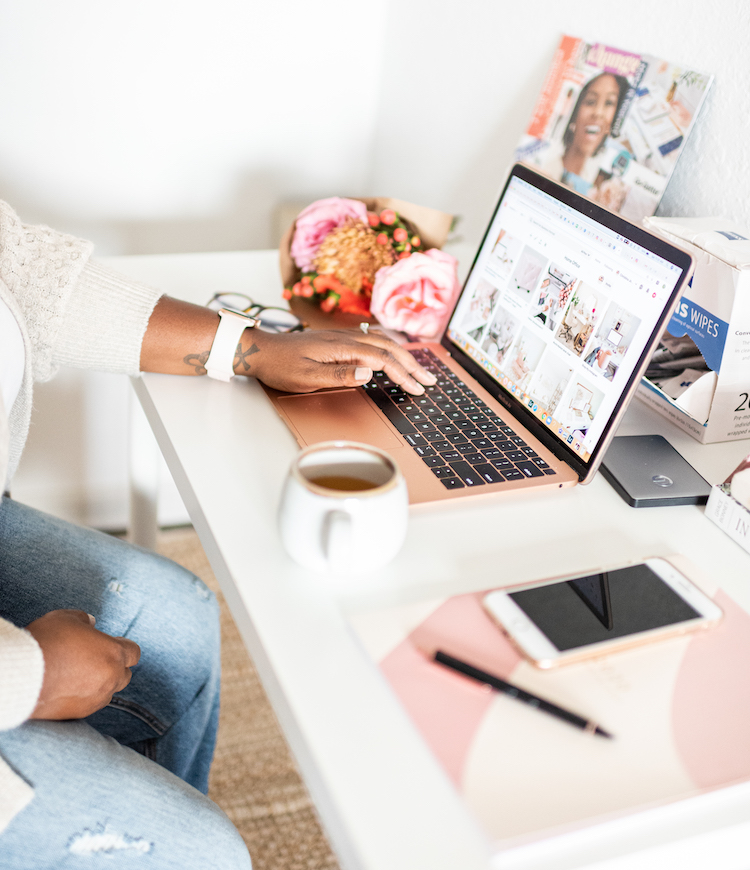
Repeat after me: “I do not have to be glued to my monitor for eight straight hours every single day.” This one became absolutely crucial when I started working from home. It was easy to sit at the computer for hours on end without ever moving. I didn’t have coworkers to chat with, have to head to a conference room for meetings, or go out to lunch—all things that used to be part of my daily life. Since I started working from home full time, it’s just me, my desk, and my computer for eight hours a day. The “bed to desk to couch and back to bed” cycle was so real and allowed me essentially no time to actually de-stress throughout the day. I try to take a short break from my screen every hour to combat this. And I don’t mean I look away from my laptop and scroll on TikTok for a few minutes. I’m talking about a real break. I give my brain short breaks throughout my day.
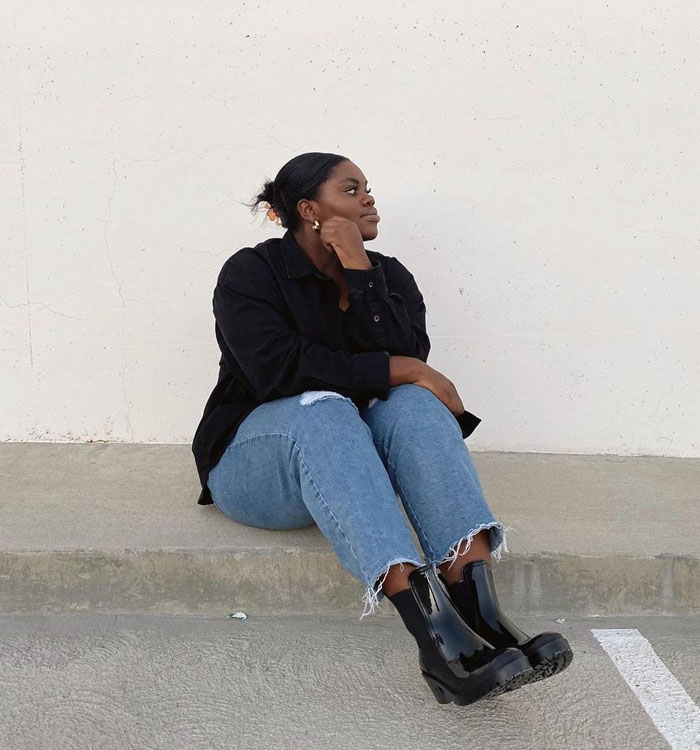

This post contains a sponsored mention of Hers. However, all opinions expressed are those of The Everygirl editorial team.
Source: The Every Girl

